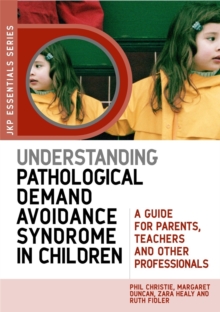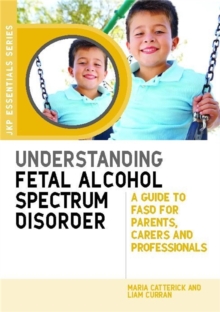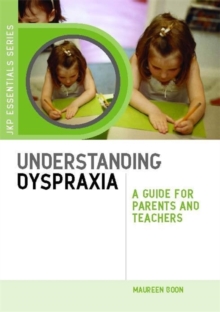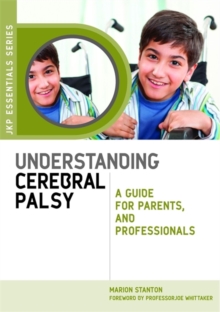
Understanding Facial Recognition Difficulties in Children : Prosopagnosia Management Strategies for Parents and Professionals Paperback / softback
by Nancy Mindick
Part of the Jkp Essentials series
Paperback / softback
Description
Can you imagine not being able to recognize those you know if they wore glasses, changed their hairstyle, or perhaps put on a hat?Prosopagnosia is a severe facial recognition disorder that is thought to impact around two per cent of the population.
Frequently found in children on the autism spectrum, those with the condition have difficulties distinguishing between one face and the next, meaning that they may not recognize even those who are closest to them.
Nancy L. Mindick provides parents, teachers, and other professionals with an accessible explanation of the different types, causes, and characteristics of prosopagnosia.
Providing an insider's perspective on the condition, she suggests ways to recognize the signs of facial recognition difficulties in children, and offers specific ideas for ensuring that they are properly supported in their learning and social development.
The issues of diagnosis and disclosure are explored, and the author offers practical management strategies for helping children to cope with the condition and to navigate the many different social situations they will encounter at home, at school, and in the community.
This book offers specific, practical information for parents, teachers, child psychologists, and anyone else who wishes to support the learning and development of a child with a facial recognition disorder.
Information
-
Available to Order - This title is available to order, with delivery expected within 2 weeks
- Format:Paperback / softback
- Pages:144 pages
- Publisher:Jessica Kingsley Publishers
- Publication Date:15/11/2010
- Category:
- ISBN:9781849058025
Information
-
Available to Order - This title is available to order, with delivery expected within 2 weeks
- Format:Paperback / softback
- Pages:144 pages
- Publisher:Jessica Kingsley Publishers
- Publication Date:15/11/2010
- Category:
- ISBN:9781849058025










